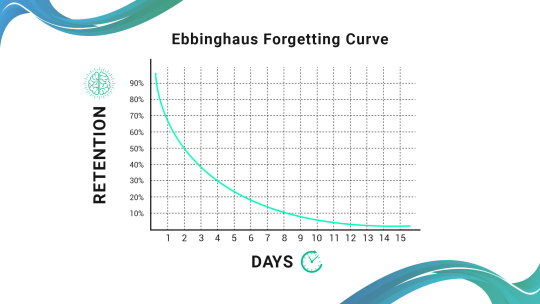#Active Learning Strategies
Text
10 Secret Tips for Effective Studying
Studying effectively is a skill that can significantly impact academic success. While there are no magical shortcuts to learning, there are proven strategies that can enhance the efficiency and effectiveness of your study sessions. In this article, we will explore 10 secret tips for studying that are backed by research and experts in the field of education.
Active Learning Techniques
Passive…

View On WordPress
#Academic Excellence#Academic Motivation#Active Learning Strategies#Cognitive Fitness#Digital Note-Taking#Diverse Learning Resources#Effective Note-Taking#Exercise for Cognition#Goal Setting Mastery#Healthy Study Habits#Mindful Study Environment#Personalized Study Space#Positive Mindset#Productive Study Sessions#Quality Sleep Practices#Review Session Success#Spaced Repetition#Stress Reduction Techniques#Study Group Benefits#time management tips
2 notes
·
View notes
Text
People need to stop spreading the myth that medication “cures” mental illnesses
No, they treat them and help you manage the symptoms
They help, but they don’t necessarily “cure”
#a lot of it is also about actively making lifestyle changes and learning specific coping strategies#there is no miracle cure#being mentally ill even on meds takes hard work DAILY
41 notes
·
View notes
Text
i hate everything

#about to go on a rant cause i'm ✨ stressed ✨#i'm currently at the very end of my masters degree so i can be a fully qualified secondary teacher#however due to the teacher shortage i have been allowed to start working as a full time teacher and have been doing so for the last year#i love my job i love the kids i love the staff members#what i dont love is having to finish off my masters degree when i've been working in the profession for a year#i have learnt more being in the classroom for a year than my whole 7 years at uni doing my undergrad and masters#i am TIRED of having to waste my time and come up with bullshit assessments just so i can get this stupid degree#schools are on winter holidays at the moment and i am meant to be relaxing or prepping for the term ahead#but no ... i've been stuck in my room for the past week doing uni assessments to prove that i know how to implement teaching strategies#and showcase how to write a lesson plan EVEN THOUGH NO TEACHER EVER WRITES ONE WHILE WORKING???????????#i just feel really bad for the kids cause i spend all my free time doing my uni shit or sleeping cause im so drained#i never have enough time to organise things for my lessons or come up with fun learning activities#usually i just do the bare minimum and pray for a pass#but this assessment just has a satisfactory/unsatisfactory mark so i cant just half ass this shit#also can yall believe that im only half way through this assessment??????????#i still have so much more to do ughhhh#anyway if you read all that im sorry and thank you#marie.txt
2 notes
·
View notes
Text
// Hello everyone! The time has finally come once again: I’m done with the semester and free from exams!
I’ll be gradually returning to activity here as well as resuming work on threads. My efforts are going to be divided between a variety of hobbies besides writing that I've also been neglecting, as well as working on some life habits, so this might be a steady but slow improvement. That being said I expect that the sheer stress that's been lifted from my shoulders is going to make a substantial difference in my ability to do things here.
I've mentioned before that I wanted to review my list of mutuals, and that's still the intention, but before taking that measure I want to get a better understanding of what my energy and mood for RP is right now. I want to test how comfortable I am in this blog and the dash without the outside influence of studying impacting my experience.
I hope you're all doing okay, and if not, I hope your next days are brighter :]
#ooc#I am so happy and relieved to be done with it#the massive contrast between me today VS me a couple of days ago in terms of mood and behavior#tells me that I've still got a lot to improve in terms of how I handle studies and other things#but we're working on it and that's what matters. I'm getting to understand myself better#and learning strategies to fight my bad tendencies and difficulties#anyways I'm excited to pick this blog up again. Summer heat does funky things to my focus so I have to look out for that#but I'm feeling optimistic#as for reviewing my mutuals list I want to give priority to those who actively show interest in what I do#and have gone out of their way to keep in touch keep plots going etc#which I think I've already been doing to be fair#nothing wrong with anyone who hasn't of course. We all have our stuff going on and I understand that#part of the reason for the mutual cleanup is also having more energy to be proactive myself. Approach those who haven't been able to
3 notes
·
View notes
Text
nothing like having therapy a day before christmas and cracking open my oldest, most debilitating issue that i have to work to unlearn; my therapist really said you’re going to be a mess for the holidays, an absolute mess but worry not we can continue this deliciously devastating conversation in january - thanks… i guess?
#like for bipolar and adhd i just have to work on strategies to cope and integrate my illness into my daily life and work around it#but this is something i have actively learned since i was fucking 3 and have to actively unlearn#this will be messy#el rambles
4 notes
·
View notes
Text
Distinguishing Chronic Complainers from Solution Seekers: The Power of Positive Mindset and Productive Behaviors
In every social and professional setting, we encounter two distinct types of individuals: chronic complainers and solution seekers. Transformation, just like mindset, is contagious. Understanding how to distinguish between these two can significantly enhance our interactions and foster a more constructive environment. Social contagion theory says that behaviors, emotions, and ideas can spread…

View On WordPress
#active listening#adaptability#behavioral mimicry#chronic complainers#chronic complaining#coaching#cognitive strategies#collaboration#communication skills#conflict resolution#constructive feedback#constructive problem-solving#emotional intelligence#empowerment#feedback#goal-setting#Growth mindset#innovation#leadership#learning and development#mentoring#motivation#optimism#Personal growth#personal transformation#positive mindset#positive reappraisal#proactive problem-solving#probing questions#problem-focused
0 notes
Text
Mastering Technical Vocabulary
Strategies and Importance in Language Learning
When learning a language, acquiring technical or specific vocabulary is essential for effective communication within particular fields or contexts. This specialized vocabulary, often referred to as jargon or terminology, is used in professional, academic, or hobbyist settings and differs significantly from general vocabulary.
Why Technical…

View On WordPress
#Active Use of Technical Terms#Contextual Learning Techniques#Effective Communication in Fields#Importance of Jargon#Language Learning Strategies#Mnemonic Devices for Vocabulary#Professional Vocabulary Mastery#Spaced Repetition for Terminology#Specialized Vocabulary Acquisition#Technical Vocabulary Learning
0 notes
Text
Enhancing Learning Retention: Utilizing Ebbinghaus’ Forgetting Curve

We’ve all experienced it: the frustration of forgetting newly acquired information much sooner than we anticipated. Despite our best efforts to consciously remember what we learned, retention often proves to be a tricky challenge. This phenomenon is not a personal failing but a natural aspect of how human memory works. Forgetting can occur rapidly, sometimes within minutes of learning something new. To tackle this issue, it’s crucial to design training programs that enhance memory retention effectively. One powerful tool in this endeavor is Ebbinghaus’ Forgetting Curve, which provides a valuable framework for understanding and mitigating the natural decline of memory over time.
Understanding Ebbinghaus’ Forgetting Curve
Hermann Ebbinghaus, a pioneering psychologist, conducted groundbreaking research on memory in the late 19th century. His experiments led to the formulation of the Forgetting Curve, which illustrates the rate at which information is lost over time when no attempt is made to retain it. According to Ebbinghaus, memory retention declines exponentially after learning, meaning that the most substantial drop in retention happens soon after the initial learning event. Without reinforcement, a significant portion of newly acquired information can be forgotten within hours or days.
The Implications for Training Design
Ebbinghaus’ Forgetting Curve highlights the necessity of strategic reinforcement in training programs to combat rapid memory loss. By understanding the curve, educators and trainers can implement methods to help learners retain information more effectively. Here are some key strategies to make learning ‘stick’:
1. Spaced Repetition
Spaced repetition involves reviewing information at increasing intervals over time. This technique counters the rapid decline in memory retention by refreshing the material just as the learner is about to forget it. For instance, reviewing new content after one day, then three days, then one week, and so on, helps solidify the memory. This method leverages the spacing effect, where information is better remembered when it is studied multiple times spaced out over a longer period.
2. Active Recall
Active recall is a powerful learning strategy that involves actively stimulating memory during the learning process. Instead of passively re-reading or listening to information, learners actively retrieve it from memory. This can be done through quizzes, flashcards, or practice tests. The process of recalling information strengthens neural connections, making the memory more durable.
3. Microlearning
Microlearning delivers content in small, manageable chunks, making it easier for learners to absorb and retain information. This approach aligns well with the principles of spaced repetition and active recall. By breaking down complex information into bite-sized pieces and reinforcing it regularly, microlearning helps combat the forgetting curve effectively.
4. Interleaved Practice
Interleaved practice involves mixing different topics or types of problems within a single study session. This contrasts with blocked practice, where learners focus on one topic at a time. Interleaving helps learners to develop better problem-solving skills and improves long-term retention by encouraging them to constantly retrieve and apply knowledge in varying contexts.
5. Feedback and Reflection
Providing timely feedback is crucial for reinforcing learning. Constructive feedback helps learners understand what they know and where they need improvement, facilitating better memory retention. Encouraging reflection on what has been learned also helps solidify knowledge. Reflection can involve summarizing key points, discussing insights with peers, or writing about the learning experience.
Applying These Strategies in Training Programs
To effectively implement these strategies, trainers and instructional designers need to create a structured plan that incorporates regular reviews and interactive learning activities. Here are some practical steps to integrate these retention techniques into training programs:
Design Modular Content: Break down training material into modules that can be revisited over time. Each module should focus on a specific topic or skill, making it easier for learners to digest and retain information.
Schedule Regular Reviews: Plan a review schedule that follows the principles of spaced repetition. Use calendars, reminders, or automated systems to prompt learners to review material at optimal intervals.
Incorporate Quizzes and Tests: Regular quizzes and tests encourage active recall. Use a mix of multiple-choice questions, short answer prompts, and practical exercises to reinforce learning.
Utilize Technology: Leverage learning management systems (LMS) and mobile apps to deliver microlearning content and track learner progress. These tools can automate spaced repetition schedules and provide instant feedback.
Foster a Collaborative Learning Environment: Encourage learners to engage in discussions, group activities, and peer teaching. Social interactions enhance memory retention by allowing learners to explain concepts and receive diverse perspectives.
Provide Timely Feedback: Ensure that learners receive immediate and constructive feedback on their performance. Highlight strengths and areas for improvement to guide their learning journey.
Encourage Reflection: Incorporate reflective activities such as journaling, group discussions, or presentations. Reflection helps learners consolidate their knowledge and identify connections between different concepts.
Measuring the Effectiveness of Retention Strategies
To ensure that the implemented strategies are effective, it’s important to measure and analyze their impact on learning retention. Here are some methods to evaluate the success of your training programs:
Pre- and Post-Training Assessments: Conduct assessments before and after the training program to measure knowledge gain and retention. Compare the results to identify areas where retention strategies are working or need improvement.
Longitudinal Tracking: Track learner performance over an extended period to observe how well they retain information. Use periodic assessments and quizzes to gauge long-term retention.
Feedback Surveys: Gather feedback from learners about their experiences with the training program. Ask about the usefulness of review sessions, quizzes, and other retention activities. Use this feedback to refine your approach.
Performance Metrics: Analyze job performance metrics to see if there’s a correlation between training participation and improved job performance. This can provide insights into the practical impact of your retention strategies.
Conclusion
Memory retention is a significant challenge in the realm of learning and development. However, by leveraging the insights provided by Ebbinghaus’ Forgetting Curve, trainers can design more effective training programs that help learners retain information over the long term. Strategies such as spaced repetition, active recall, microlearning, interleaved practice, and timely feedback are essential tools in combating the natural decline of memory. By thoughtfully integrating these techniques into training programs, organizations can enhance learning outcomes, boost employee performance, and ultimately achieve their development goals.
#Memory Retention#Ebbinghaus’ Forgetting Curve#Learning Strategies#Training Design#Spaced Repetition#Active Recall#Microlearning#Interleaved Practice#Feedback#Reflection#Learning Retention Techniques#Forgetting#Learning and Development#Modular Content#Review Schedule#Quizzes and Tests#Learning Management Systems (LMS)#Collaborative Learning#Constructive Feedback#Reflective Activities#Pre- and Post-Training Assessments#Longitudinal Tracking#Feedback Surveys#Performance Metrics#Job Performance#Learning Outcomes#Employee Performance#Information Recall#Memory Decline#Learning Reinforcement
1 note
·
View note
Text
Universal Development: Year One - Year Two
Expanded Curriculum Focus
1. Integrate Technology Mindfully:
Utilize interactive e-books or apps that allow your child to interact with the story by touching parts of the screen to hear sounds or change images. This can enhance his engagement and make reading time even more dynamic.
Consider short, child-friendly videos that tie into your weekly themes, like watching real animals for “Animal…

View On WordPress
#age-appropriate toys#art projects for kids#attachment parenting#auditory learning activities#bedtime routines#bilingual education for toddlers#block building#brain development#cause and effect learning#child behavior management#child care#child care professionals#child creativity#child development#child development charts#child development products#child development theories#child development workshops#child discipline strategies#child education blogs#child exploration kits#child nutrition#child psychology#child safety#child safety measures#child-friendly museums#child-friendly recipes#cognitive behavioral tools for kids#cognitive development#community interaction
0 notes
Text
Boosting Pre-Primary Education Success with Parental Power

Are you a parent of kids who is worried about their pre-primary education practices? The early years are a critical window for a child's development, and the role of parents is paramount. The foundation of a child's educational success is laid long before they step into a formal classroom.
Pre-primary education plays a vital role in nurturing this growth, but it's important to remember that a child's first and most influential teacher is often their parent. Empowering parents for effective pre-primary education practices is not just beneficial; it is essential. It also helps in creating a good bond between the child and parents.
In the blog, you will learn more about empowering parents for effective pre-primary education practices in detail.
Why Empowering Parents Matters
Many parents may experience uncertainty regarding their child's pre-primary education. They may wonder how to best support their child's learning at home or how to bridge the gap between what happens in the classroom and their daily routines. Parents are concerned about their kid’s education at home. They think about how they can help educate their kids in the best way at home. Empowering parents for effective pre-primary education practices deals with these concerns by:
1. Building Confidence
When parents gain a comprehensive understanding of child development milestones and effective learning strategies, they become more confident in their capacity to support and foster their child's growth. This knowledge gives them the confidence to create enriching learning environments and engage in activities that promote their child's cognitive, emotional, and social development.
As a result, they can play a more active and informed role in their child's early education, positively impacting their overall development and readiness for future educational challenges.
2. Enhancing Collaboration
When parents feel empowered with the right knowledge and resources, they are better equipped to communicate and collaborate effectively with teachers. This empowerment enables them to actively participate in discussions about their child's progress, share insights about their child's needs, and support the educational strategies implemented by teachers.
3. Extending Learning Beyond the Classroom
Through an understanding of the curriculum and learning activities implemented at school, parents can effectively tailor their efforts at home to create engaging and complementary experiences that reinforce their child's educational journey.
4. Fostering a Love for Learning
When parents show excitement and eagerness to learn new things, their positive energy and enthusiasm become infectious, inspiring those around them, including their children, to also assume a love for learning and exploration.
Strategies for Empowering Parents
1. Education and Awareness
Workshops and Seminars
Organizing workshops and seminars on child development and early education can provide parents with valuable insights. Topics such as the importance of play, language development, and positive discipline can be covered.
Online Resources
Creating a repository of online resources, including articles, videos, and interactive modules, can help parents access information at their convenience.
2. Practical Guidance
Activity Guides
Providing parents with guides on age-appropriate activities can help them engage their children in meaningful ways. These guides can include simple games, reading lists, and craft ideas that promote learning.
Routine Building
Assisting parents in establishing daily routines that incorporate learning activities can ensure consistency and structure, which are vital for young children.
3. Community Building
Parent Support Groups
Facilitating parent support groups where experiences and ideas can be shared fosters a sense of community. These groups can meet in person or online, providing a platform for mutual support.
School-Parent Partnerships
Strengthening the partnership between schools and parents can lead to more cohesive educational experiences. Schools can organize regular meetings and involve parents in the decision-making process regarding their child's education.
Addressing Common Challenges
Despite the best intentions, parents often face challenges in implementing effective pre-primary education practices. These challenges can include time constraints, lack of resources, and limited understanding of child development principles.
Empowering parents for effective pre-primary education practices means acknowledging these challenges and providing practical solutions.
Time Management
Offering tips on time management can help parents balance their responsibilities while dedicating time to their child's education. This could include integrating learning activities into daily routines and setting realistic goals.
Access to Resources
Collaborating with community organizations and libraries to provide parents with access to books, educational materials, and toys can bridge resource gaps. Additionally, creating online platforms where parents can share and exchange resources can be beneficial.
Continuous Learning
Encouraging parents to continuously educate themselves about child development through books, courses, and online content can keep them informed and motivated.
The Final Note
Empowering parents with effective pre-primary education practices is an essential step in ensuring that children receive the best start in their educational journey. By providing parents with the knowledge, resources, and support they need, we can help them build the confidence required to foster their child's development at home. This empowerment not only enhances the learning experience for children but also strengthens the bond between parents and their children.
Through education and awareness, practical guidance, and community building, we can address the common challenges parents face and offer practical solutions. In the end, investing in empowering parents for effective pre-primary education practices is a crucial aspect of early childhood education. It lays a solid foundation for children's overall development and prepares them for the challenges ahead. As we continue to support and empower parents, we pave the way for a brighter and more successful future for our children.
#Pre-primary education success#Parental involvement in early education#Empowering parents for education#Child development milestones#Early childhood education strategies#Parent-teacher collaboration#Home learning activities#Building parental confidence#Enhancing child development#Educational workshops for parents#Effective learning environments#Bridging classroom and home learning#Supporting child’s cognitive development#Community resources for parents#Time management for parents#littleginnie#best preschool in south delhi
0 notes
Text
Emotional Wellness Tips to Help You Reach Your Full Potential
Meet our expert guide, passionate about unlocking your full potential through Full Emotional Wellness Tips. With a focus on holistic well-being, our tips encompass emotional intelligence, self-care practices, and mindfulness techniques to empower you on your journey to peak performance. Discover the transformative power of Emotional Wellness Tips and embark on a fulfilling path towards your best self
#Emotional Wellness Tips#Social Skills Development#Social Connection Strategies#Love And Friendship Tips#Family Bonding Activities#Healthy Living Tips#Health Improvement Techniques#Fitness And Nutrition Advice#Environmental Conservation Tips#Building Healthy Relationships#Time Management Techniques#Fashion For Different Body Types#Online Learning Platforms#Fitness And Exercise
1 note
·
View note
Text
Memory techniques that work wonders! Explore this blog for expert insights on enhancing your memory retention during IIT JEE preparation. Say goodbye to forgetfulness and hello to academic success!
For more such helpful blogs visit our blog page: https://www.catalyser.in/blog
And if you are looking for Top Coaching Institute for your IIT JEE Preparations, Reach us at: https://www.catalyser.in/
#iit jee preparation#preparation strategies#jee preparation tips#Preparation Techniques#active learning#memory techniques#study techniques
0 notes
Text
Top 10 Employee Engagement Activities for a Positive Workplace
Elevate your workplace culture with these top 10 employee engagement activities. Foster a positive environment, boost morale, and enhance teamwork for a more productive and enjoyable work experience.
#Employee engagement ideas#Workplace positivity#Team-building activities#Collaborative work culture#Employee wellness initiatives#Health and happiness at work#Continuous learning opportunities#Skill enhancement workshops#Employee recognition programs#Celebrating achievements at work#Flexible work arrangements#Work-life balance activities#Professional growth opportunities#Mentorship programs#Coaching sessions for employees#Vibrant workplace culture#Social events at work#Employee gatherings#Workplace camaraderie#Open communication channels#Employee feedback forums#Positive work environment#Team bonding activities#Employee motivation strategies#Creative engagement ideas#Employee participation initiatives#Employee appreciation events#Building a positive workplace#Employee morale boosters#Workplace satisfaction activities
0 notes
Text
Memory Improvement Techniques That Actually Work
Introduction
Improving memory isn’t just about remembering where you left your keys or the name of that colleague from another department. It’s about enhancing your overall mental fitness and paving the way for stronger cognitive abilities. Not to mention, it’s an asset that becomes invaluable as you age. From simple daily tasks to complex professional challenges, an improved memory can make a…

View On WordPress
#brain health strategies#brain training techniques#cognitive enhancement methods#cognitive function improvement#cognitive performance optimization#focus and concentration exercises#learning optimization tips#memory boosting exercises#memory enhancement practices#mental agility training#mental exercise strategies#mind sharpening activities#recall improvement techniques#retention enhancement practices
0 notes
Text
Motion and Literacy: Transforming Early Literacy Through Movement-Integrated Learning
A groundbreaking study has shed light on the profound impact of movements mimicking letter sounds on improving young students’ spelling skills. This innovative technique surpasses traditional teaching methods in efficacy, marking a significant leap in early literacy development. The findings hold immense value for educators, offering new strategies to address literacy challenges across different…

View On WordPress
#Academic Research#Early Literacy Development#Innovative Educational Strategies#Movement-Based Learning#Physical Activity in Education#Reading Proficiency#Spelling Skills Enhancement
0 notes
Text
Becoming a Master Influencer: Know the Art & Science of Persuasion
In a world dominated by social media, marketing, and constant communication, the ability to influence others has become a coveted skill. Whether you’re a business professional, an entrepreneur, or an individual navigating the complexities of everyday life, mastering the art of influence can open doors, foster meaningful connections, and propel you toward success. In this blog, we will explore the…

View On WordPress
#active listening#authentic leadership#building trust#constructive criticism#continuous learning#effective communication skills#emotional intelligence#empowerment strategies#ethical influence#handling resistance#influence mastery#influencer#kailash satyarthi#mindfulness#nobel peace prize#personal branding#persuasion techniques#positive mindset#psychology of influence#resilience in leadership#visionary leadership
0 notes